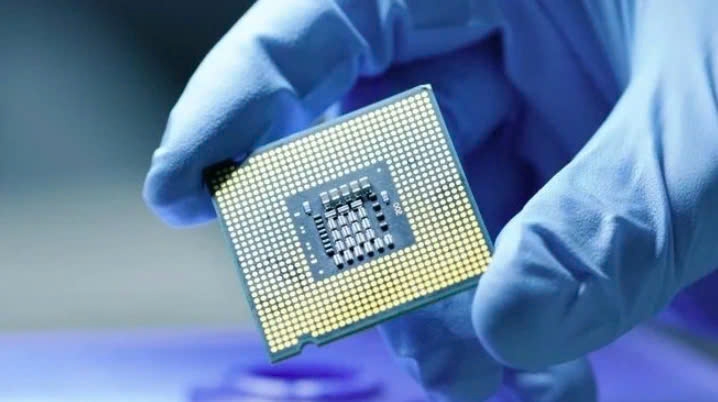PM requests enhancing human resource training for semiconductor industry
Society – Economy - Ngày đăng : 06:30, 05/12/2024

The Directive aims to meet the demand for high-quality human resources for the semiconductor industry, with the goal of building a skilled workforce capable of fulfilling the requirements in semiconductor design, production, and research.
To achieve this goal, the Prime Minister has instructed relevant ministries, sectors, and localities to coordinate and carry out several key tasks, including promoting training and development of experts and engineers in semiconductor-related fields, particularly at universities, research institutes, and vocational education centers.
He requested enhancing cooperation with other countries and international organizations in training, technology transfer, and scientific research in the semiconductor industry, investing in establishing research centers and specialized training institutes for the semiconductor industry, as well as fostering cooperation between educational institutions and businesses in the industry.
He also asked for an increase in support for businesses in developing their human resources and adopting advanced technologies in semiconductor production and design.
The Directive also encourages the development of policies that offer scholarships, training programs, and research opportunities for students, engineers, and scientists with potential in the semiconductor industry.
The Directive was signed on December 4 by Deputy Prime Minister Le Thanh Long on behalf of the Prime Minister.
In September, 2024, the Prime Minister approved the Vietnam Semiconductor Industry Development Strategy until 2030 with a vision to 2050, and the Human Resource Development Program for the Semiconductor Industry until 2030 with orientation to 2050.
Vietnam is interested in the semiconductor industry for its strategic importance to the economy. It recognizes that the semiconductor industry is a core sector that provides the technological foundation for digital industries and technology applications.
Developing the semiconductor industry will also improve the skills of Vietnam's workforce, creating opportunities for learning and technology transfer from developed countries.
In the context of other countries increasing investment in the semiconductor industry, developing this industry domestically helps Vietnam reduce its dependence on imported semiconductor technologies and products, thus enhancing its technological self-reliance and protecting national interests.
With the rising global demand for high-tech products and the shifting of supply chains worldwide, Vietnam is expected to leverage this opportunity to become an attractive destination in the semiconductor industry, especially as companies seek countries with reasonable production costs and strong growth potential.
